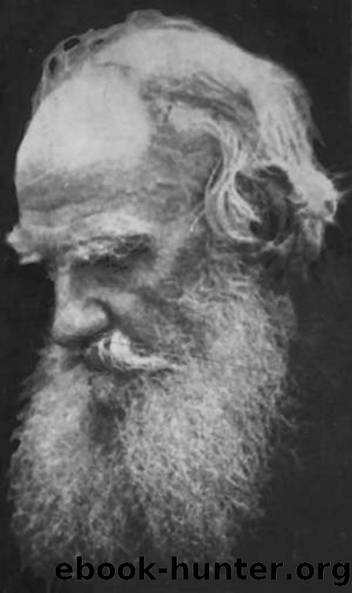A Short History of Russia by Mary Platt Parmele

Author:Mary Platt Parmele [Parmele, Mary Platt]
Language: eng
Format: epub
ISBN: 9781346700687
Google: KdFJjwEACAAJ
Publisher: Creative Media Partners, LLC
Published: 2015-11-18T00:19:47+00:00
CHAPTER XIX
NAPOLEON IN EUROPEâATTITUDE OF RUSSIA
Paul was forty-one years old when he ascended the throne he had for twenty years believed was rightfully his. The mystery surrounding the death of his father Peter III., the humiliations he had suffered at his mother's court, and what he considered her usurpation of his rightsâall these had been for years fermenting in his narrow brain.
His first act gave vent to his long-smothered indignation and his suspicions regarding his father's death. Peter's remains were exhumedâplaced beside those of Catherine lying in state, to share all the honors of her obsequies and to be entombed with her; while Alexis Orlof, his supposed murderer, was compelled to march beside the coffin, bearing his crown.
Then when Paul had abolished from the official language the words "society" and "citizen," which his mother had delighted to honorâwhen he had forbidden the wearing of frock-coats, high collars, and neckties, and refused to allow Frenchmen to enter his territoryâand when he had compelled his people to get out of their carriages and kneel in the mud as he passedâhe supposed he was strengthening the foundations of authority which Catherine II. had loosened.
To him is attributed the famous saying, "Know that the only person of consideration in Russia is the person whom I address, and he only during the time I am addressing him." He was a born despot, and his reforms consisted in a return to Prussian methods and to an Oriental servility. The policy he announced was one of peace with Europeâa cessation of those wars by which his mother had for thirty-four years been draining the treasury. He was going to turn his conquests toward the East; and vast plans, with vague and indefinite outlines, were forming in the narrow confines of his restless brain. But these were interrupted by unexpected conditions.
In 1796 the military genius of a young man twenty-seven years old electrified Europe. Napoleon Bonaparte, at the head of a ragged, unpaid French army, overthrew Northern Italy, and out of the fragments created a Cisalpine Republic. The possession of the Ionian Isles, quickly followed by the occupation of Egypt, threatened the East. So Turkey and Russia, contrary to all old traditions, formed a defensive alliance, which was quickly followed by an offensive one between Russia and Austria. But the tactics so successful against Poles and Turks were unavailing against those employed by the new Conqueror. The Russian commander Suvorov was defeated and returned in disgrace to his enraged master at St. Petersburg, who refused to receive him. In 1798 Bonaparte had secured Belgium, had compelled Austria to cede to him Lombardy, also to promise him help in getting the left bank of the Rhine from the Germanic body, and to acknowledge his Cisalpine Republic.
The Emperor Paul's feelings underwent a swift change. He was blinded by the glory of Napoleon's conquests and pleased with his despotic methods. He conceived not only a friendship but a passion for the man who could accomplish such things. Austria and England had
Download
This site does not store any files on its server. We only index and link to content provided by other sites. Please contact the content providers to delete copyright contents if any and email us, we'll remove relevant links or contents immediately.
| Africa | Americas |
| Arctic & Antarctica | Asia |
| Australia & Oceania | Europe |
| Middle East | Russia |
| United States | World |
| Ancient Civilizations | Military |
| Historical Study & Educational Resources |
Red Famine: Stalin's War on Ukraine by Anne Applebaum(2470)
Chernobyl by Serhii Plokhy(2131)
Midnight in Chernobyl by Adam Higginbotham(2081)
The House of Government by Slezkine Yuri(1847)
Midnight in Chernobyl: The Untold Story of the World's Greatest Nuclear Disaster by Adam Higginbotham(1776)
Red Shambhala by Andrei Znamenski(1752)
The Gulag Archipelago (Vintage Classics) by Aleksandr Solzhenitsyn(1730)
From Cold War to Hot Peace by Michael McFaul(1714)
All the Kremlin's Men by Mikhail Zygar(1703)
Putin's Labyrinth(1662)
Red Notice by Bill Browder(1596)
The Future Is History by Masha Gessen(1593)
From Russia with Lunch by David Smiedt(1553)
A People's Tragedy by Orlando Figes(1545)
The Romanovs by Simon Sebag Montefiore(1493)
How to Tame a Fox (and Build a Dog): Visionary Scientists and a Siberian Tale of Jump-Started Evolution by Lee Alan Dugatkin & Lyudmila Trut(1469)
Putin's Labyrinth: Spies, Murder, and the Dark Heart of the New Russia(1457)
The Lost Spy by Andrew Meier(1399)
Art and Revolution by John Berger(1391)
